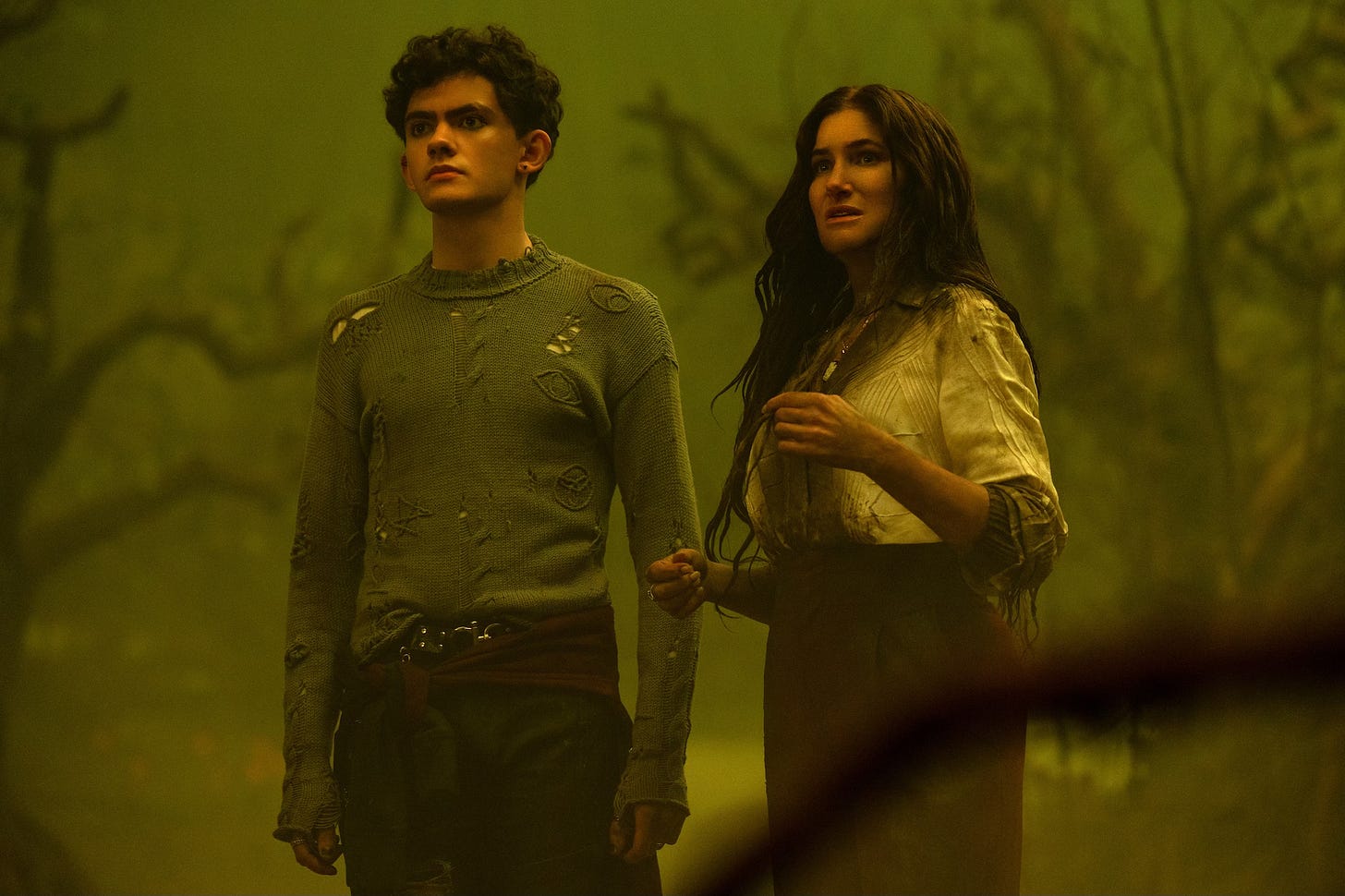[Spoilers ahead for the first six episodes of Agatha All Along]
Earlier this year, filmmaker and actor Jim Cummings released Is Now a Good Time?, a fairly scathing rebuke of Disney’s flexible morality when it comes to their Marvel superhero movies. These are characters who are supposed to be moral paragons, but their films are structured in such a way as not to offend the prejudices of countries like China, which won’t accept gay characters in cinema. If you include gay characters, you need to be ready to lose that country’s box office.
While Marvel provides a lot of lip service towards inclusion, Disney expects the studio to generate as much revenue as possible, and if that means making it so that scenes with gay characters can land on the cutting room floor with no narrative consequences, then that’s what Marvel will do. This is a huge bummer for LGBTQ+ audiences who would like to be included in the vast legions of superheroes coming to cinemas. Seeing someone like you on screen with superpowers is empowering.
Marvel is now trying to thread the needle by embracing LGBTQ+ characters in their television shows, which, despite all the shortcomings of the MCU on Disney+, is at least creating inclusion in a place where the corporate parent will allow it.
In the sixth episode of Agatha All Along, we learn the backstory of the Familiar Teen (Joe Locke). As some suspected from the first episode, the unnamed character turned out to be Billy Kaplan-Altman, aka “Wiccan.” Billy is one of Wanda’s (Elizabeth Olsen) two sons (the other being Tommy), and while in the MCU, we thought these characters were erased when Wanda ended the Westview Anomaly, it turns out that the consciousness of Billy Maximoff made its way to William Kaplan.

This is a fairly clever screenwriting trick because when we meet William Kaplan, he’s having his Bar Mitzvah. Following a car accident, he wakes up with the consciousness of Billy Maximoff. The subtext here is one of growing sexual awareness and the feeling that now that he’s experienced one rite of passage, he’s also experienced another as he awakens to not only a superpower (telepathy) but to his sexual identity.
The show does not keep Billy’s homosexuality as subtext. The show jumps forward three years, and we see that Billy has not only been studying magic and trying to figure out why he woke up transformed, but he has a boyfriend. They love each other. They kiss. This is all integral to establishing Billy’s character, and it would never make the cut if Agatha All Along were a movie. Everything gay about Billy would have to remain strictly subtext as if this were a movie operating under the Production Code of 1940s Hollywood.
I’ll leave it to those in the LGBTQ+ community to appraise the efficacy of the show’s portrayal of Billy, but I like that Marvel is at least making an effort since they’ve declined to do so in so much of their media. It’s not exactly like the MCU is brimming with openly gay characters, and Wiccan is one of the most important gay characters in Marvel Comics. Wiccan and his husband Hulkling are Marvel’s most prominent gay couple. To backtrack and erase homosexuality from Wiccan’s TV counterpart would have been a massive disservice to the LGBTQ+ comics fans who felt empowered by his story.
What this all means for the character going forward, I don’t know. We still have three episodes of Agatha All Along left, and then there’s the question of whether we’ll see any of the characters ever again, given how crowded the MCU has become. But within this self-contained narrative, I like that Marvel isn’t just putting in a gay character as a little nod but as the co-lead of the series. Perhaps one day, the movies will find the courage to catch up.




